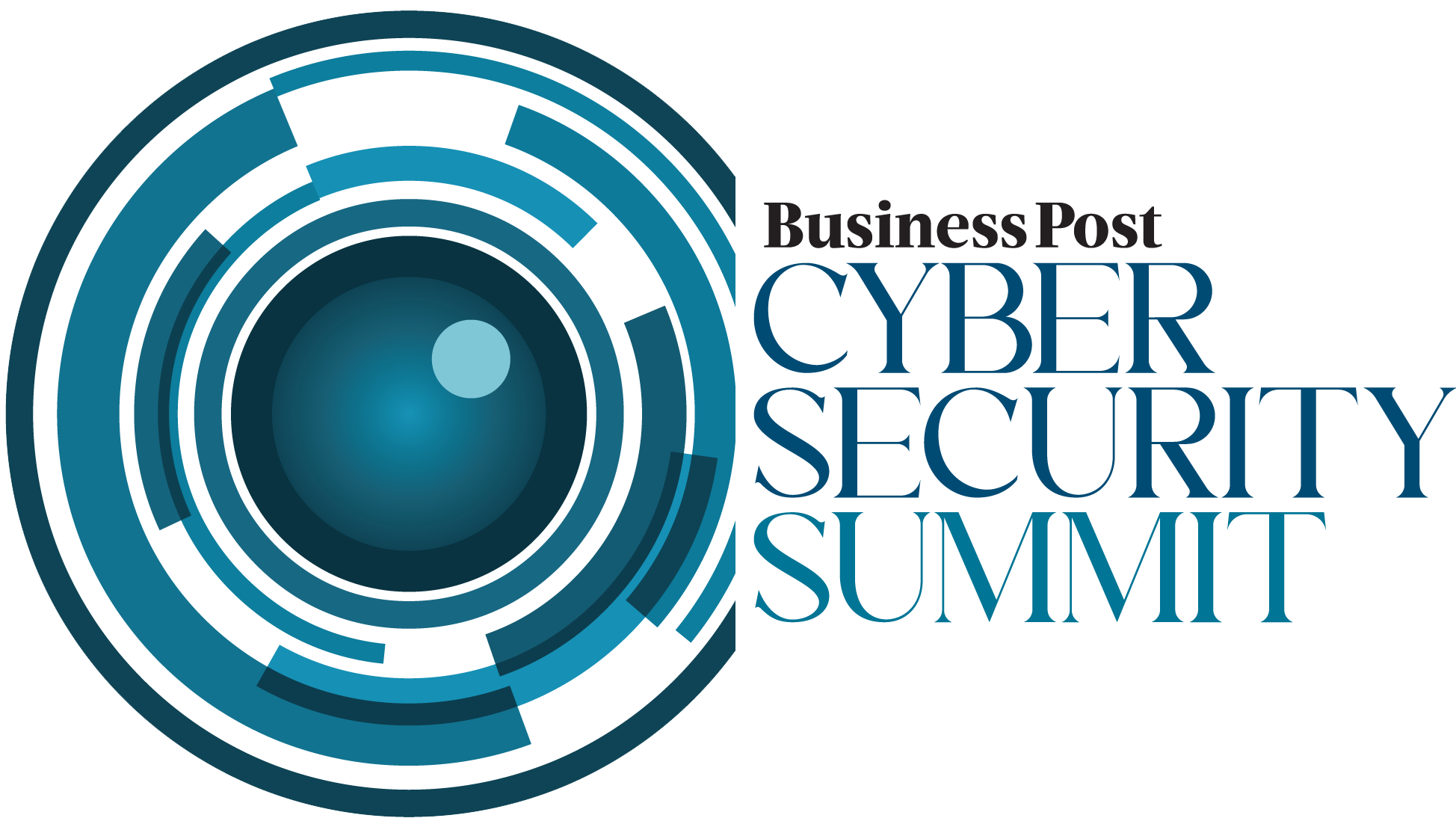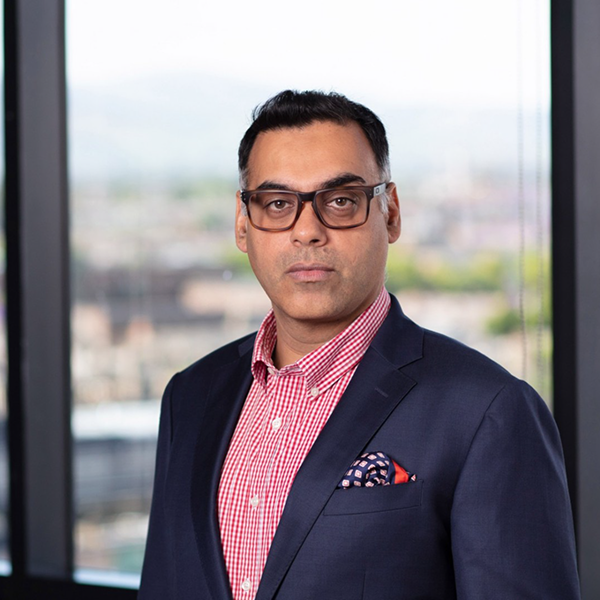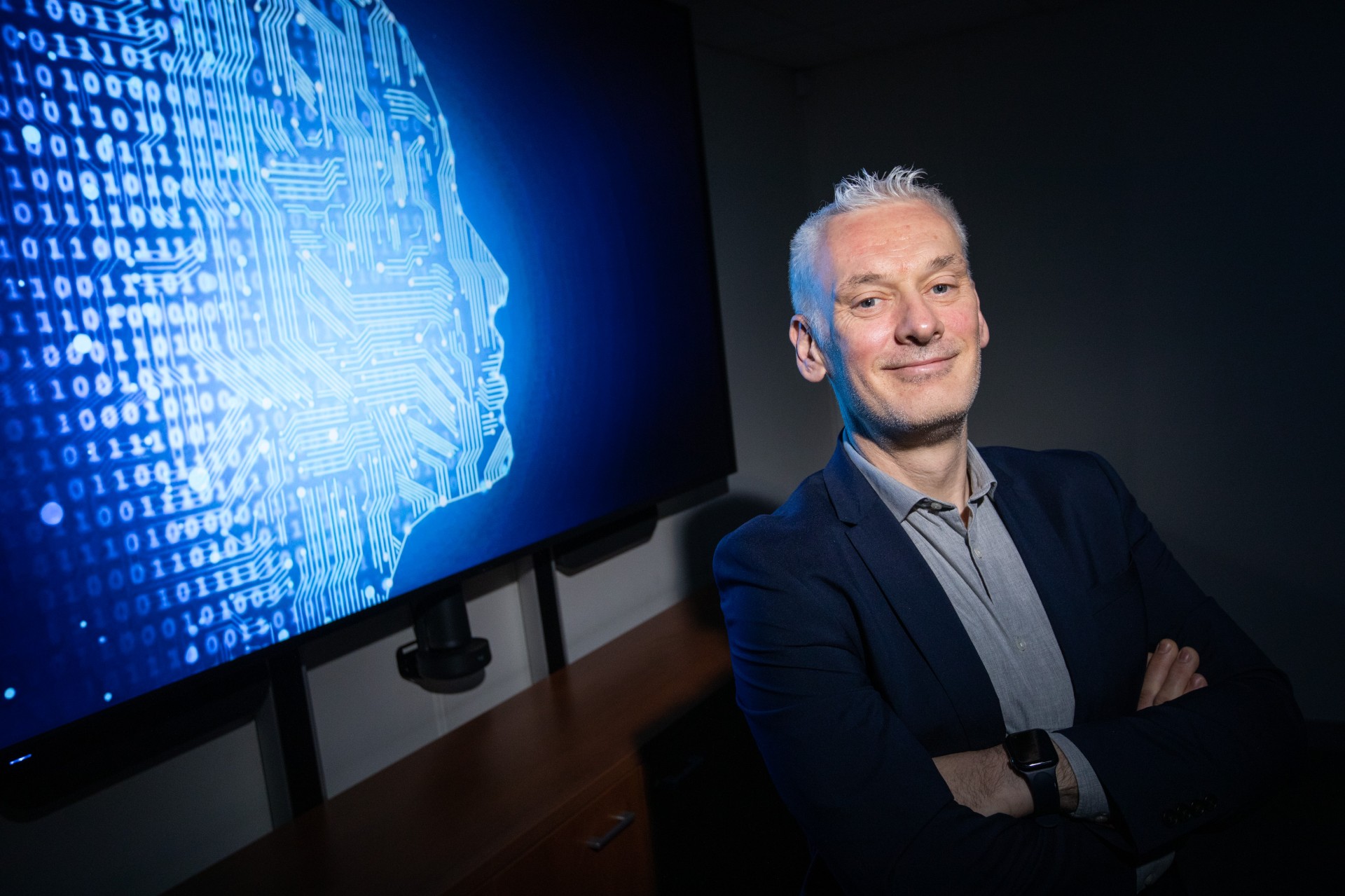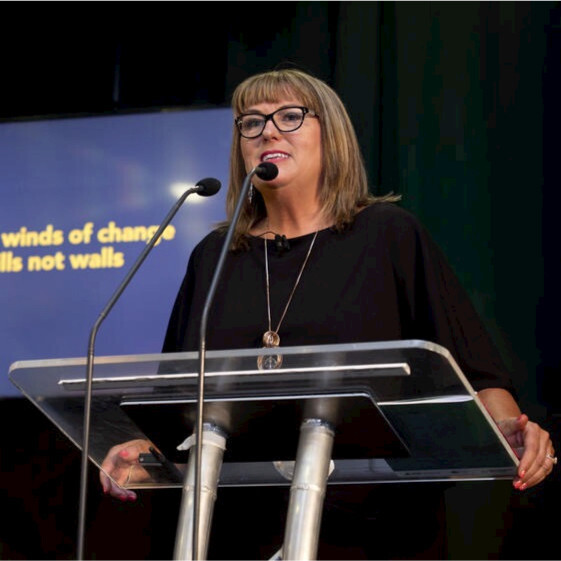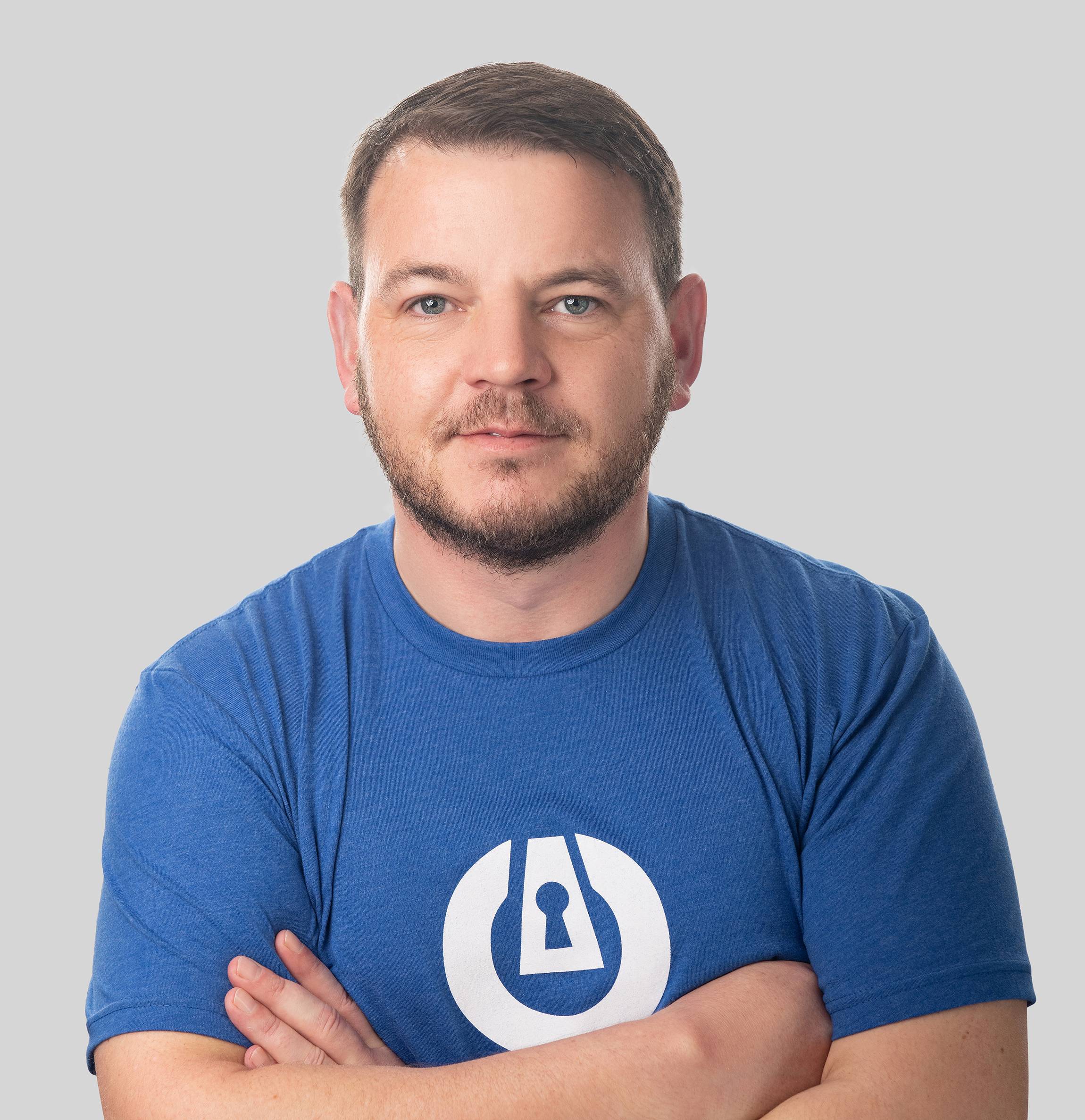With various EU directives coming online over the next 12 months, what will this mean for CISO, Organisations and IT professionals? Our panel will discuss how organisations need to be compliant and how to reduce the risk of fines or warnings for the changing regulations.
MORNING SESSION
9:05am
OPENING REMARKS FROM THE CHAIR
Policy Developments
9:10am
KEYNOTE ADDRESS:
AI & Cyber – Navigating the regulatory reset
Head of Cyber Ireland (UKI)
9:10am
GOVERNMENT ADDRESS
Update on Ireland’s cyber security status
Minister of State at the Department of Public Expenditure, National Development Plan Delivery and Reform and at the Department of Environment, Climate and Communications
9:10am
KEYNOTE ADDRESS:
The Biggest Cybersecurity Learning Curves of 2025…
9:25am
PANEL DISCUSSION:
Future EU Regulations in Action – EU AI/NIS2/DORA Directives – What Does This Mean?
Founder and CEO, Galvia AI
Head of Engagement, Ireland’s National Cyber Security Centre (NCSC)
Head of Compliance and Risk, Fexco Group
9:25am
INTERNATIONAL KEYNOTE ADDRESS
The Sisterhood of Firewalkers: Women in Cybersecurity (WiCys)
Extraordinary innovation happens when we include and learn from diverse people and perspectives. Advance your talent in Cybersecurity programs and careers as we walk through fire together
Chief Information Security Officer and Senior Vice President , Optum USA
9:40am
PANEL DISCUSSION:
Cyber Resilience in Europe: Governing Trust in a Zero Trust World
Europe is setting a global benchmark for digital regulation through the EU AI Act and the Cyber Resilience Act. These new rules place cybersecurity, accountability, and transparency at the core of how organisations design and use technology… and AI. This panel will explore the governance challenges and opportunities posed by these frameworks, and how businesses can remain both compliant and resilient in a Zero Trust environment.
Discussion Points:
- What the EU AI Act and Cyber Resilience Act mean for cybersecurity strategy and product design
- Practical steps to adopt Zero Trust in line with EU regulations
- Balancing innovation, usability, and security in compliance efforts
- Managing overlapping regulatory obligations across security, AI, and data protection
Head of Security Portfolio at Vodafone Business
Assistant Professor in IT Law, School of Law, Trinity College Dublin
Associate General Counsel, Cybersecurity Law, Meta
Independent Senator, Seanad Éireann
9:45am
PANEL DISCUSSION
Strengthening EU-wide resilience
- aligning with the requirements of new EU legislation
- an overview of the ever-changing geopolitical landscape and its impact on cyber security
- the emergence of non-state actors: how to adapt the cyber security framework to successfully protect ourselves
- why international collaboration is the key to combat global threats to our security
- protecting our critical national infrastructures
- making businesses, governments and society more resilient
Metodi Hadјi Janev, Associate Professor of Law, Military Academy North Macedonia
Director, National Cyber Security Centre (NCSC)
Future trends – threats and developments on the Horizon
10:10am
INTERNATIONAL KEYNOTE ADDRESS:
Being Human To Protect Your Critical Assets
CEO and Founder, ishca health
10:15am
PRESENTATION
The importance of OT security to modern businesses
Senior Manager, Cyber Security, BT
10:15am
KEYNOTE ADDRESS:
The Dark Reality of Digital Identity Theft
James Blake, TV Presenter (BBC’s Hunting the Catfish Crime Gang) & Entrepreneur shares his extraordinary journey into the dark world of online identity theft. After discovering that his name and image were being used in global romance scams, James embarked on a multi-year investigation that exposed a sophisticated criminal network linked to human trafficking and organised fraud. Through first-hand accounts, exclusive insights from his documentary work, and a raw look at the personal and professional toll of identity fraud, James sheds light on the real-world impact of cybercrime. This session offers cybersecurity professionals a unique perspective on the human side of online scams – from the vulnerabilities that make them possible to the international scale of their operations. James’ story acts as a cautionary tale and a call to action for greater vigilance, collaboration, and ethical responsibility in the fight against cyber-enabled exploitation.
TV Presenter & Entrepreneur
10:25am
PANEL DISCUSSION:
Defending the nation of Ireland and the Potential Impact on Foreign Direct Investment
Do you think we as a nation are ready to defend ourselves against a large-scale cyber-attack from an external entity?
On this panel we will discuss what is currently being done to protect Irish infrastructure and businesses against the ever-increasing threat of international hackers. Is this enough and what should we be doing to strengthen our protection. The panel will also discuss Ireland’s National Cyber Security Strategy and the potential impact that not taking these threats seriously could have on foreign direct investment.
Chief Security Officer & Country Manager, Barclays Bank Ireland
Independant TD, Seanad Éireann
Director of Communications, Information Services & Cyber Defence, Irish Defence Forces
CEO and Founder, ishca health
Detective Superintendent, An Garda Síochána
10:30am
KEYNOTE PRESENTATION
Cyber risk – what every board needs to know
Asserting the imperative of strategic leadership, Dwyer presents a clear, actionable blueprint for navigating the complex terrain of cyber risk management. Underlining the recent European Union legislation, the Digital Operational Resilience Act (DORA) illuminates the integral role of management boards in spearheading ICT security strategies. DORA cements the fact that business leaders aren’t just spectators but are now fully responsible and accountable for mitigating cyber risks within their organisations.
President, International Cyber Threat Task Force (ICTTF)
10:35am
Defending the nation of Ireland and the Potential Impact on Foreign Direct Investment
Do you think we as a nation are ready to defend ourselves against a large-scale cyber-attack from an external entity?
On this panel we will discuss what is currently being done to protect Irish infrastructure and businesses against the ever-increasing threat of international hackers. Is this enough and what should we be doing to strengthen our protection. The panel will also discuss Ireland’s National Cyber Security Strategy and the potential impact that not taking these treats seriously could have on foreign direct investment.
10:35am
PANEL DISCUSSION:
Identity Theft in the Digital Age: Lessons from the recent retail Cyber Hacks
The recent retail cyber attacks, where a failure in two-factor authentication (2FA) led to the theft of sensitive customer data, underscores the vulnerabilities in authentication systems. This panel will examine how weaknesses in 2FA can be exploited for identity theft and explore strategies for improving cybersecurity to prevent such breaches.
- The evolving risks of identity theft and the limitations of traditional two-factor authentication
- Securing authentication mechanisms across mobile, web, and third-party services
- The role of adaptive authentication as the future of secure identity verification
- Legal and regulatory implications for UK businesses following identity theft incidents
CIO, BWG Foods UC
Detective Superintendent, Garda National Cyber Crime Bureau
Head of InfoSec & Cyber Risk at AIB
10:45am
PRESENTATION
AI-driven cyber security: a double edged sword
Head of Cyber Ireland (UKI)
11:00am
Networking Coffee Break & Exhibition Viewing
11:00am
Networking Coffee Break & Exhibition Viewing
11:00am
11.00am - 11.30am:
Networking Coffee Break & Exhibition Viewing
11:30am
Opening Remarks from The Stream Chair
Director for Ireland, WiCyS UKI Affiliate
11:30am
Opening Remarks from The Stream Chair
President, Women in Technology and Science (WITS)
11:30am
Opening Remarks from The Stream Chair
Director for Ireland, WiCyS UKI Affiliate
11:30am
OPENING REMARKS FROM STREAM CHAIR
11:30am
OPENING REMARKS FROM STREAM CHAIR
11:35am
SPOTLIGHT ON:
The Bare Necessities – Ransomware Survival
Assistant Professor in IT Law, School of Law, Trinity College Dublin
11:35am
KEYNOTE ADDRESS:
Securing the Human Firewall – Empowering Users in Cybersecurity Defence
Senior Security Consultant, Cybersecurity For Girls
11:35am
KEYNOTE ADDRESS
Cybersecurity as an enabler for economic growth
The National Cyber Security Centre is leading on addressing the cyber skills gap through facilitating increased access to courses, increasing awareness of careers in cybersecurity and in undertaking market analysis to better understand supply and demand. The Centre is also leading on the development of a national strategy to foster state of the art research, innovation and industrial development with cybersecurity. Within this context, this keynote address will also cover the new National Cybersecurity Coordination and Development Centre project, encompassing a €2 million programme of supports for industry and societal stakeholders to strengthen resilience and facilitate innovation.
Head of Capacity Building, National Cyber Security Centre (NCSC), Department of the Environment, Climate and Communications (DECC)
11:35am
KEYNOTE:
Simplifying Cybersecurity
As cybersecurity has grown more complex with escalating threats and consequences, revisiting the fundamentals takes extra importance. Learn how to cut through the noise to what matters most for practical and effective security. We’ll explore simple things you can do to stop cyberattacks so you can better protect your organization today.
Vice President of Operations for EMEA, ThreatLocker
11:35am
PANEL DISCUSSION -
EU Cyber Resilience Act (CRA) and the Impact in the SME sector
How will the EU Cyber Resilience Act (CRA) impact Small and Medium Enterprises (SMEs) that manufacture or distribute digital products? CRA mandates that these products meet specific cybersecurity requirements throughout their lifecycle, from design to end-of-life. While aiming to enhance digital product security, the CRA poses compliance challenges for SMEs due to its broad scope and technical requirements. Our panel will discuss these challenges and the potential impact within the SME Sector, along with providing information on how companies can prepare for the act.
CEO & Co Founder, Cyber Cert Labs
11:40am
INTERNATIONAL KEYNOTE
What is the priority #1 in strengthening our systems?
Cyber Security Specialist, Czechia
11:40am
PANEL DISCUSSION
Implementing DORA – achieving enhanced digital operational resilience in European financial services
Digital Operational Resilience Act (DORA) is the first piece of legislation at the European level addressing the topic of digital operational resilience for financial services. It is hailed as a “game changer” that will push Financial Services firms to fully understand how their ICT, operational resilience, cyber and TPRM practices affect the resilience of their most critical functions as well as develop entirely new operational resilience capabilities.
What does DORA mean for firms and how should financial forms engage with the Act?
Chief Information Officer, Irish Life
Director of Financial Regulation, Policy & Risk, Central Bank of Ireland (CBI) (invited)
Head of Cyber Resilience and Strategic Regulatory Relations, AIB
11:50am
PANEL DISCUSSION:
Cyber Resilience – Best Practices and Strategies
Prioritising cyber resilience has never been more essential! Following the introduction of the European Union’s NIS2 directive, we will discuss the challenges and risks organisations will face and when implementing upcoming EU Regulations including: NIS2, DORA and the EU AI Directive. Our panel will cover what this means for you and your organisation.
Principal Solution Architect, Armis Security
PhD, Cybersecurity Lecturer, Munster Technological University
Partner, Cyber, EY Ireland
Governance Risk & Best Practice, Senior Manager, Group Information Security, CRH Group
11:50am
PANEL DISCUSSION:
The Weakest Link – Human Factor in Cybersecurity – How to Empower Users to Be Defenders
Despite advancements in technology, human error remains a weak link that attackers could exploit. In this session we will discuss the crucial role individuals play in safeguarding digital systems against the evolving threat landscape. Our Speakers will explore the different human behaviours that contribute to security breaches and discuss practical strategies that organisations could take to minimise security breaches.
Program Director for Change and Transformation, ARevolution
Co-founder, Cyber Awareness Ireland
Director of ICT, National Treatment Purchase Fund (NTPF)
Head of Cybersecurity, Ireland CDC, Tata Consultancy Services
11:50am
PANEL DISCUSSION
Emerging technologies and new concerns: what does the future hold for IT security and data protection?
The world of IT and cyber security is constantly evolving, and staying ahead of the curve is essential for protecting your networks and sensitive information, and preventing cyberattacks. With new technologies emerging all the time, it can be challenging to keep up with the latest trends and developments. From Artificial Intelligence (AI) and Machine Learning (ML), Behavioural Biometrics, Zero Trust Architecture, Blockchain, Quantum Computing, Cloud Security and IoT Security,this panel will discuss some of the newest security technologies and how they can help strengthen your IT systems to keep your data safe.
Chair of Cyber Security, Munster Technological University (MTU)
Head of Cloud Competence Centre, National College of Ireland (invited)
Enterprise ICT Assurance Manager, Data Protection Commission (DPC)
Senior Software Engineer, Fidelity Investments
11:50am
PANEL DISCUSSION
How to build cyber resilience against chronic threats and respond to cyber breaches
- Protecting your organisation against phishing, ransomware and malware attacks
- Making it difficult for attackers to reach your users
- Responding to incidents quickly and effectively
- Why the protection of legacy systems shouldn’t be ignored
- Responding to current global IT and OT threats
Head of Data and Analytics, Primark
Director ICT, Governance & Corporate Services, Irish Prison Service
Lecturer in Cybersecurity, Munster Technological University (MTU)
Detective Chief Superintendent, Garda National Cyber Crime Bureau
11:50am
PANEL DISCUSSION:
Elevating AI Education Across the Business
With AI playing an increasingly central role in both cyberattacks and defence mechanisms, educating staff on AI-driven cyber threats is vital to protecting the business. This panel will explore how organisations can equip their workforce with the knowledge and skills needed to identify, prevent, and respond to AI-powered attacks.
- Understanding the impact of AI on modern cyberattacks and how it enhances threat sophistication
- Assessing the current level of AI awareness and security skills within the organisation
- The role of leadership in promoting AI literacy and building a security-conscious culture
- Effective strategies for educating non-technical staff on AI-driven cyber threats and detection techniques.
- Preparing the business for future AI threats: Creating a culture of continuous learning and adaptation
Head of Data Science & AI, ACI Worldwide
Senior Security Consultant, Cybersecurity For Girls
Professor of Cyber Security, Ulster University
12:10pm
SPOTLIGHT SESSION:
Securing the Edge: IoT, Compliance & the Next Frontier of Cyber Risk
As IoT devices multiply and edge computing expands, new cybersecurity risks and compliance demands are emerging. This session explores how edge infrastructure is reshaping IoT security, what regulations like the Cyber Resilience Act mean for connected devices, and how organisations can secure data and operations beyond the traditional network perimeter.
Head of the Department of Electronic Engineering and Communications, SETU
12:20pm
PANEL DISCUSSION
Preparing your journey towards compliance for NIS2
The Network and Information Security Directive Revision 2 brings into scope more sectors and focuses on providing guidelines to ensure uniform transposition across EU member states.
- What’s new in NIS2?
- How can you prepare your organisation for NIS2?
Head of Compliance, National Cyber Security Centre (NCSC), Department of the Environment, Climate and Communications (DECC)
Founder, Fortify Institute
Chief Information Security Officer, Canada Life Group Services
12:25pm
PANEL DISCUSSION:
Resilience by Design: Embedding Security into the Fabric of the Organisation
- Zero trust in practice: Building adaptive security architectures
- Preparing for AI-driven threats
- Engineering principles for modern threats and regulatory demands
Head of IT, Cityjet DAC
12:30pm
PRESENTATION:
Enhancing security monitoring in critical infrastructure for NIS2 compliance
Security monitoring, threat intelligence, and automated incident response are crucial for organizational security and this session explores how to strengthen them to meet NIS2’s risk management, data protection, and reporting mandates.
IT Security Solutions Expert, ManageEngine
12:30pm
PRESENTATION:
Beyond BYOD – Protecting Your People and Your Data in An Increasingly Blended Work Environment
Ways in which your Cyber Security can be compromised, in addition to attacks from bad actors can also include inadvertent mixing of data and workflows across corporate and personal IT
Examples of how the increasing complexity and blurred boundaries between work and home can lead to inadvertent data leakage and increased cyber risk
Drafting and presenting policies and controls in a way that brings your people – your last line of defence – with you, even if they are non technical.
Enterprise ICT Assurance Manager, Data Protection Commission (DPC)
12:30pm
SPOTLIGHT SESSION
One Step Beyond – pro-actively managing systemic risk in your supply chain
The proliferation of supply chain attacks has led to greater levels of organisational disruption and personal compromise as criminals continue to exploit vulnerabilities in supply chain services. This session will shine a light on:
- overview of the current supply chain threat landscape
- how emerging, broader risk dimensions have gained momentum
- strategies to accurately assess, prioritise and mitigate supply chain risks
Vice President, Cyber Security & Resilience, Mastercard Europe
12:40pm
SPOTLIGHT ON...
Ireland’s Blockchain Opportunity
Chief Executive Officer, Defactor Labs
12:45pm
SPOTLIGHT ON:
Engaging Colleagues in Cyber Security – 2 Practical Techniques You Can Use To Get Information From and Answer Your Colleagues Questions About Cyber In Your Organisation.
Founder, Impactful Project Management
12:45pm
PRESENTATION
Staying ahead of emerging threats
12:45pm
Secure your organisation beyond the endpoint – Learnings & Outcomes from a Security Operations Centre
Internet-of-Things (IoT) devices have increasingly been the target of malicious attacks. Even after numerous reported incidents the use of IoT devices in organisations has not slowed down. Being relatively cheap, small, and easy to deploy, IoT devices provide many useful capabilities including environment monitoring, surveillance, data streaming, and acting as direct communication between parties. So how do organisations protect themselves from being a target?
Senior Systems Engineer, Arctic Wolf - “David Bradley” is in twice please remove
12:45pm
Case Study:
Cybersecurity Trends and predictions: research from Arctic Wolf labs and the current threats and decisions leaders should be aware of
How do you lead when every second counts? This session reveals the inside story of managing a cyber attack in real time. From chaos to containment and the hard-earned lessons in resilience and recovery.
Senior Systems Engineer, Arctic Wolf - “David Bradley” is in twice please remove
1:00pm
Networking Lunch Break & Exhibition Viewing
1:00pm
Networking Lunch Break & Exhibition Viewing
1:00pm
1.00pm - 2.00pm:
Networking Lunch Break & Exhibition Viewing
MAIN STAGE: Future Tech Beyond the Horizon
2:00pm
WELCOME BACK
2:05pm
PANEL DISCUSSION:
Cybersecurity Skills Gap – Do We Have a Skills Gap or a Retention Issue?
Can academia and cyber experts work together to provide a continuous supply of qualified cybersecurity professionals? Do Irish organisations face a skills gap or a retention issue? How organisations can encourage diversity and inclusion in their workforce?
Associate Professor, School of Computer Science, UCD
Partner Solution Architect, Global Partner Sales, Microsoft and Founder, International Women in Tech
Senior Security Consultant, Cybersecurity For Girls
Chair, CEN/TC 428 ICT Professionalism and Digital Competences
2:05pm
PRESENTATION:
From ChatGPT to Deepseek & Beyond – Protecting Data for the Next AI Boom
Senior Product Marketing Manager, Netskope
2:20pm
IN CONVERSATION WITH...
How Ireland could ‘take the lead’ in ethical AI
Partner, Cybersecurity Services, IBM Consulting
Professor of Finance, DCU Business School
2:20pm
PANEL DISCUSSION:
Is Malware Getting Smarter? Exploring AI-Driven Threats and Solutions
As cyber threats evolve, so too does the sophistication of malware. Powered by artificial intelligence, today’s malware is becoming more adaptive, stealthy, and difficult to detect. This panel will explore into how AI is being used to create advanced cyber threats and discuss the cutting-edge solutions designed to combat them.
- How AI is enabling smarter, more evasive malware tactics
- Detecting and responding to AI-enhanced cyber threats: Current challenges and solutions
- Predictive threat intelligence: How AI can help foresee and prevent attacks
- Ethical considerations of using AI in both attack and defence
Head of ICT and Chief Information Security Officer, Ornua
Group, CISO, Paysend
2:35pm
PANEL DISCUSSION:
Securing Critical Sectors and Infrastructure in A Changing Threat Environment
CIOs can take the CrowdStrike outage as an opportunity to reassess their company’s preparedness against major outages. Testing out crisis scenarios and developing business continuity plans are some of the tools available to tech chiefs before the next major IT outage strikes.
Business Continuity & Cyber Security Assurance Manager, ESB Networks
Neha Agrawal, Director - Cybersecurity, EY Ireland
Cyber Security Architecture Manager, Uisce Éireann
Delivery Director, Cyber Transformation, HSE
2:40pm
PANEL DISCUSSION
Creating a cyber workforce fit for the future
- the gender gap in cybersecurity space
- fostering a pipeline of IT and cyber security talent
- who owns security? The challenge of creating a culture of security throughout the organisation
- strategies for addressing the skills gap, including education initiatives and non-traditional routes into the cyber security profession
- the role of hands-on employee training and awareness in developing a strong cyber security culture
- CIO and CISO collaboration for a strong security posture and regulatory adherence.
President, Women in Technology and Science (WITS)
Director for Ireland, WiCyS UKI Affiliate
Director, Security Engineering, Salesforce
Head of Cybersecurity, Ireland CDC, Tata Consultancy Services
3:10pm
PRESENTATION:
Smart Tech, Smarter Threats: The Future of Cyber Risk Management
In this talk, Blessing Usoro explores the cybersecurity risks that organisations, businesses, and the public face as emerging technologies advances. She will highlight real threats such as deepfake attacks, and automated hacking tools. Blessing will discuss data privacy concerns, vulnerabilities in critical infrastructure, and the ethical issues of using machine learning technologies in cybersecurity. Attendees will learn practical tips and best practices to protect their digital infrastructure and personal data, gaining a clear understanding of how to navigate the complex world of cybersecurity in the emerging technologies era.
Information Security Manager, Cyber for School Girls
3:10pm
PANEL DISCUSSION:
What Did You Tell AI?! Preventing Sensitive Data from Becoming Public Prompt Fuel
AI tools like ChatGPT have become embedded in daily workflows in many businesses. While they can offer immense productivity gains, they also introduce serious cybersecurity risks: employees are pasting sensitive legal documents, IP, and strategic plans into AI models… often without company oversight! As generative AI systems may learn from inputs, companies face two urgent challenges: preventing confidential data from being exposed or retained, and ensuring their competitive intelligence isn’t resurfaced in someone else’s prompt. This panel dives into how cybersecurity leaders can get ahead of “Shadow AI” use before it becomes a data breach vector.
- How does unmanaged AI use put sensitive data at risk?
- How do private inputs influence public AI outputs?
- Containing the risk: Deploying private, secure enterprise AI environments
- Establishing Enforceable AI Usage Policies
ndustry Board Member, CeADAR (Ireland's Centre for AI), and executive director and COO at BH Consulting, where she leads data protection, cybersecurity, and AI governance consulting initiatives
Chief Information Officer, Kainos
3:25pm
PANEL DISCUSSION:
Future Trends in Cybersecurity: Anticipating Threats and Opportunities in 2025 and Beyond
Panel to discuss exploring new cybersecurity threats in 2025 this panel should cover areas such as AI-powered attacks, quantum computing vulnerabilities, supply chain risks.
Former Director of Technology Innovation at Novartis
Founder, Fortify Institute
CEO, Orcawise
Chief Cybersecurity Architect, Citi
3:30pm
CONFERENCE ENDS
3:45pm
CLOSING REMARKS
3:50pm
GOVERNMENT ADDRESS:
Update on Ireland’s Cyber Security Status
Minister of State at the Department of Public Expenditure, National Development Plan Delivery and Reform and at the Department of Environment, Climate and Communications
3:50pm
SUMMIT ENDS
3:50pm
